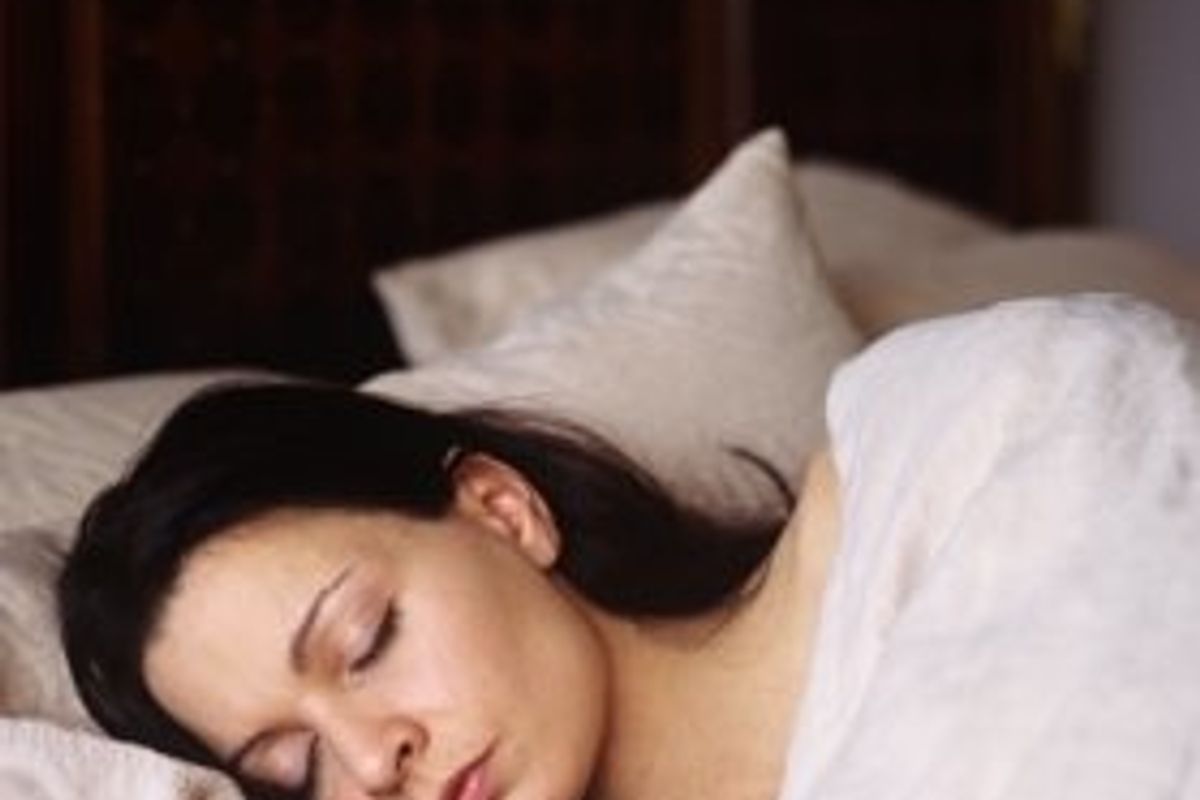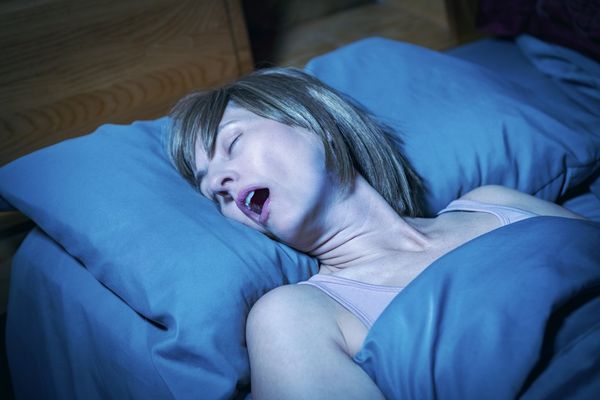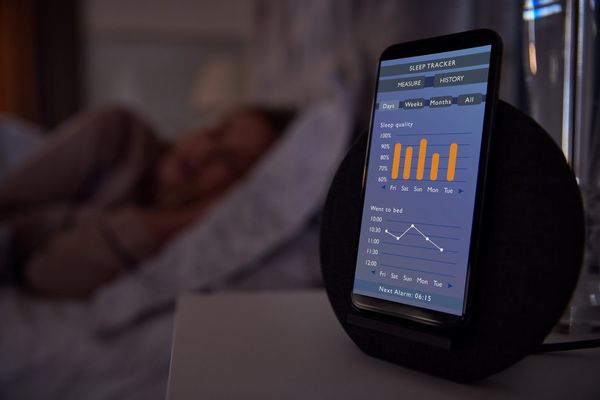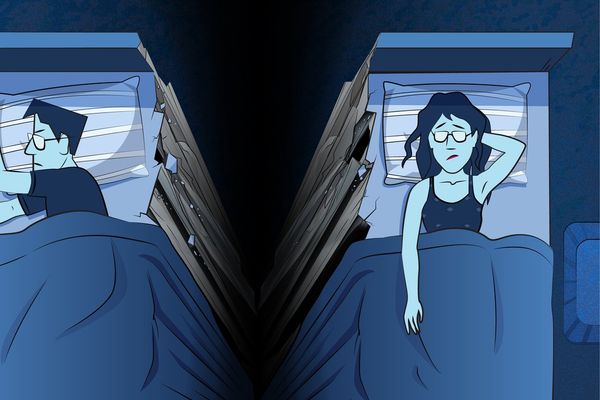Obstructive sleep apnea (OSA) is a potentially serious medical condition that affects as many as 12 million Americans. It is characterized by repeated pauses in breathing during sleep. The word "apnea" is Greek for "without breathing." Each pause can last 10 to 20 seconds or more. Although sleep apnea is a common disorder, approximately 75 to 80 percent of OSA cases remain undiagnosed.
In fact, a recent survey of approximately 1,200 women found that more than half (52 percent) weren't aware that OSA exists.
OSA, the most common form of sleep apnea, can result in fragmented sleep and low blood oxygen levels. If untreated, OSA can raise your risk of having high blood pressure and even a heart attack or stroke. Recent studies also suggest that sleep apnea may negatively affect blood sugar control in people with diabetes. Patients with OSA often report trouble concentrating, suffering from morning headaches and being excessively sleepy. The good news is that OSA can be diagnosed and treated.
Who Is at Risk for Obstructive Sleep Apnea?
Anyone can have OSA, but men are twice as likely as women to have it. However, it may be underdiagnosed in women for a number of reasons. Women are less likely than men to report symptoms. Instead, they tend to dismiss their sleepiness or fatigue as a result of their lifestyles, but sleepiness and fatigue can affect quality of life, safety and productivity. Women who do report some symptoms suggestive of sleep apnea to a doctor are actually more likely to be misdiagnosed with other conditions like depression or insomnia. Women who are obese or who have been through menopause may be at a higher risk of developing OSA.
Other risk factors include:
- Older age: People over 40 years of age are more likely to have sleep apnea, but it can affect anyone at any age.
- Excess weight: Two out of three people with sleep apnea are overweight or obese, but even thin people can have it. Extra fat deposits in the upper airway are thought to predispose to airway obstruction during sleep.
- Neck circumference: A thick neck is associated with an increased risk of sleep apnea.
- Narrowed airway: The size of the airways in the nose, throat or mouth may be decreased; for example, there may be physical abnormalities in the nose or upper airway or enlarged tonsils or adenoids.
- Nighttime nasal congestion: Allergic rhinitis, acute upper respiratory tract infection and anatomy have been linked to snoring and OSA.
- Use of alcohol or sedatives: These relax the muscles in the throat and may promote apneic episodes.
- Smoking: Smoking can increase inflammation and fluid retention in the upper airway, making apnea worse.
- Family history: OSA seems to run in some families, suggesting a possible genetic predisposition.
Signs, Symptoms and Consequences
Many people with OSA do not remember waking up to disruptions in airflow, which can occur hundreds of times every night. In fact, OSA is often first recognized by a sleep partner or roommate, who notices heavy snoring or labored breathing in an attempt to restore normal breathing. Often, people with sleep apnea do not consult their health care providers until their significant other complains or expresses concerns about loud snoring that is interrupted by periods of silence followed by gasps for air. Although loud snoring is often considered the hallmark of OSA, not all snorers have OSA. Patients with OSA often experience excessive sleepiness (ES), which is characterized by an inability to stay awake, even in situations when you want and need to be.
If you have ES, you may feel as though you don't have the energy to complete tasks of daily living, despite getting enough sleep. So, if you or your partner feels unusually sleepy to the point it affects your tasks of daily living, talk with your health care provider right away.
Signs and symptoms include:
- Loud snoring with periods of not breathing (apnea)
- Abrupt awakenings accompanied by shortness of breath and/or choking sensation
- Excessive sleepiness during the day
- Morning headaches or sore/dry throat
- Restless sleep
- Feeling irritable
- Frequent urination at night
Consequences include:
- Increased risk of hypertension, abnormal heart rhythms, heart attack and stroke
- Decreased physical performance
- Impaired concentration and poor judgment
- Forgetfulness
- Mood swings or behavior changes
- Difficulty managing high blood pressure
- Increased risk for and/or difficulty managing diabetes
What's Your Snore Score?
Your answers to this sleep quiz from the American Sleep Apnea Association (ASAA) will help you decide whether you may suffer from sleep apnea:
1. Are you a loud, habitual snorer?
Yes No
2. Do you feel tired and groggy on awakening?
Yes No
3. Are you often sleepy during waking hours and/or can you fall asleep quickly?
Yes No
4. Are you overweight and/or do you have a large neck?
Yes No
5. Have you been observed to choke, gasp or hold your breath during sleep?
Yes No
If you or someone close to you answers "yes" to any of the above questions, you should discuss your symptoms with your physician or a sleep specialist as soon as possible. Here are some questions to bring with you to your appointment:
10 Questions to Ask Your Health Care Professional
1. Could my excessive sleepiness be due to obstructive sleep apnea?
2. How do I tell whether I (or my partner) have obstructive sleep apnea?
3. How is obstructive sleep apnea diagnosed?
4. Do I have any risk factors for this condition?
5. Are there lifestyle changes I can make?
6. How should I manage daytime sleepiness?
7. What is a sleep diary? How can it help you evaluate my sleep problems?
8. Is it important that I get treatment for obstructive sleep apnea?
9. How is obstructive sleep apnea treated?
10. What treatment options would you recommend?
- The 4 Most Common Sleep Disorders - HealthyWomen ›
- Why Is My Sleep Apnea Making Me So Tired During the Day ... ›
- Sleep Disorders - HealthyWomen ›
- Sleep Apnea Is More Common Than You Think — and More Serious ... ›







